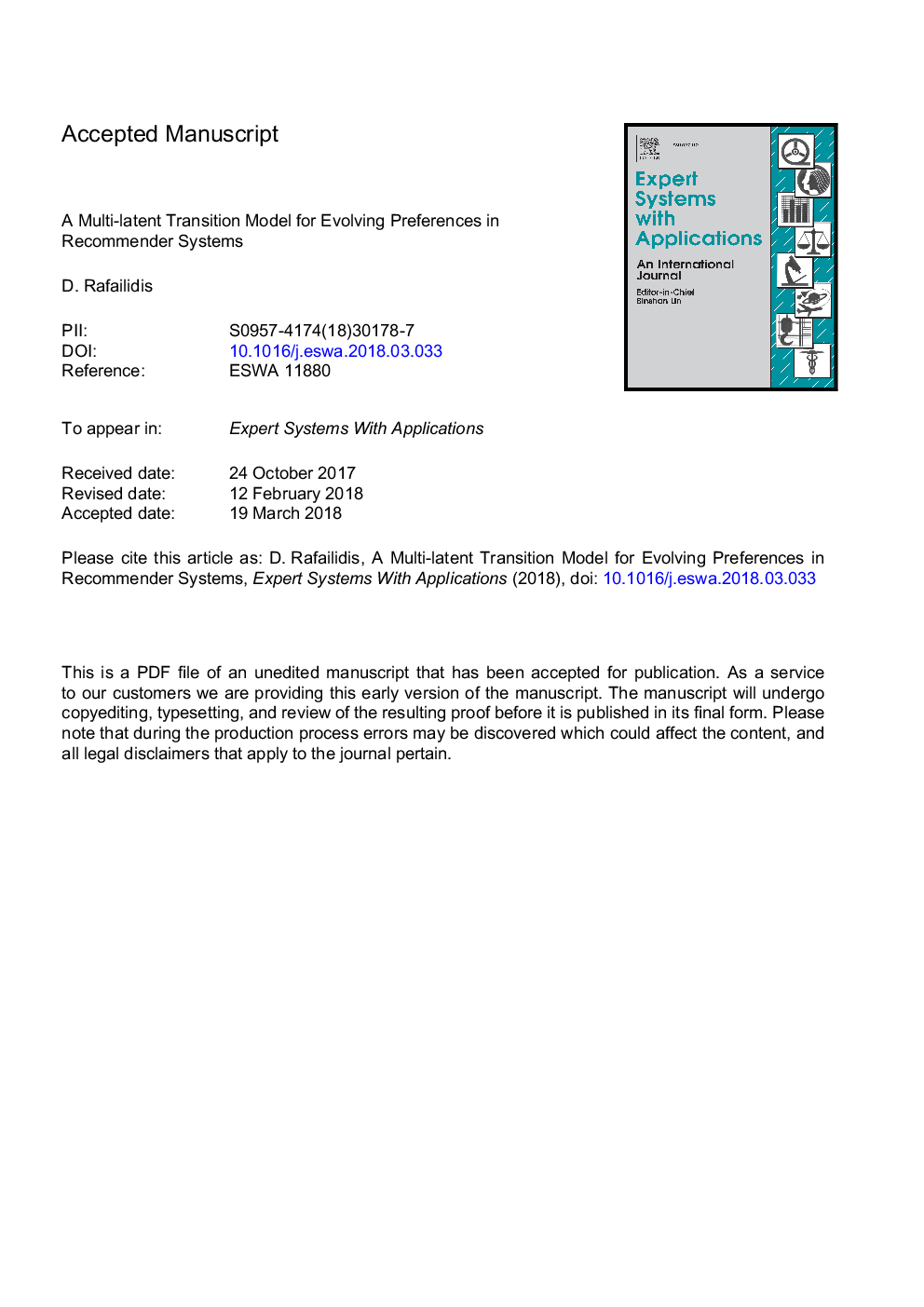| Article ID | Journal | Published Year | Pages | File Type |
|---|---|---|---|---|
| 6854989 | Expert Systems with Applications | 2018 | 33 Pages |
Abstract
In recommender systems users interact with items, while their preferences evolve over time. The challenge is how to identify the correlation between users' recent and past preferences to generate accurate recommendations. In this study, we propose a Multi-Latent Transition (MLT) model. We formulate a joint objective function to calculate the multiple transitions between an ongoing period with users' latest preferences and all the past ones, considering the multiple transitions at the user latent space of the different periods. The joint problem is solved via an efficient gradient-based alternating optimization algorithm, with convergence guarantees. Furthermore, to better capture the correlation between the ongoing period and a past one we also exploit items' metadata, accounting for the fact that users may have stable preferences over time as they may like certain attributes of items e.g., an actor or a movie director, or radically shift their preferences because they dislike them. Our experiments show that MLT significantly outperforms state-of-the art methods and boosts the recommendation accuracy for users with stable preferences and for users that tend to shift their preferences often.
Keywords
Related Topics
Physical Sciences and Engineering
Computer Science
Artificial Intelligence
Authors
D. Rafailidis,
